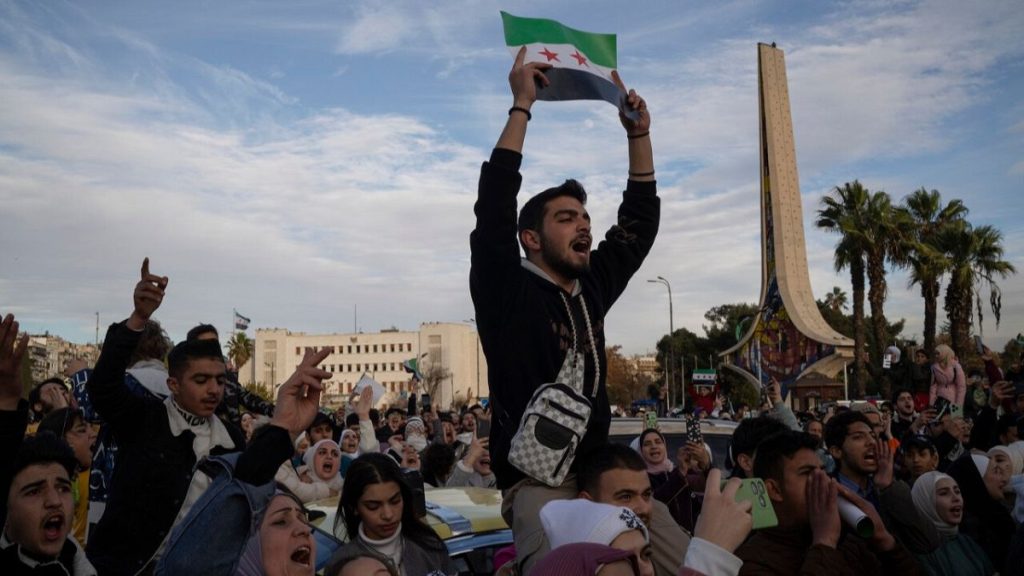The dramatic fall of Bashar al-Assad’s regime in Syria after years of brutal civil war has ushered in a period of profound uncertainty and cautious optimism. Hayat Tahrir al-Sham (HTS), the rebel group that captured Damascus, is now at the forefront of efforts to shape the country’s future, facing the formidable task of establishing stability, rebuilding a shattered nation, and gaining international legitimacy. HTS leader Ahmad al-Sharaa, formerly known as Abu Mohammed al-Jolani, called on Syrians to celebrate the momentous occasion peacefully, emphasizing the need to refrain from violence and focus on the arduous task of reconstruction that lies ahead. The transition from a brutal dictatorship to a new, hopefully more democratic, form of governance is fraught with challenges, and the world watches closely to see how HTS navigates this delicate period.
The international community, particularly the G7 nations, has expressed cautious support for a political transition in Syria, emphasizing the need for an inclusive, non-sectarian government. This new government must uphold the rule of law, protect human rights, including those of women and minorities, and operate with transparency and accountability. The G7 has pledged to support a Syrian government that adheres to these principles, signaling a potential willingness to engage with HTS if it demonstrates a genuine commitment to democratic values and a break from its past association with extremist ideologies. This cautious optimism is tempered by the understanding that HTS has its roots in al-Qaeda and faces an uphill battle to convince the world of its transformation.
HTS is acutely aware of the need to project a moderate image and distance itself from its extremist past to gain international acceptance and much-needed aid for reconstruction. Spokespeople for the group have emphasized their commitment to the rule of law, respect for religious and cultural diversity, and the establishment of a stable and inclusive government. These pronouncements are met with skepticism from some quarters, given HTS’s history, but the group appears determined to demonstrate its commitment to a new path. The coming weeks and months will be crucial in determining whether HTS can truly transform itself and gain the trust of the international community.
US Secretary of State Antony Blinken’s diplomatic efforts in the region underscore the complex web of interests and concerns surrounding Syria’s future. His meetings with Turkish President Recep Tayyip Erdoğan and Foreign Minister Hakan Fidan focused on the critical need to prevent a resurgence of ISIS, a threat that looms large in the current power vacuum. The discussions also addressed the ongoing conflict in Gaza and the broader issue of Middle East stability. Blinken emphasized the importance of a Syrian transition that is inclusive and protects the rights of all citizens, echoing the G7’s call for a credible and non-sectarian government. He affirmed the US commitment to supporting such a government while also acknowledging the challenges and potential pitfalls ahead.
Blinken’s subsequent meetings with Arab foreign ministers, EU officials, the Arab League, and the United Nations highlight the global nature of the Syrian crisis and the need for a coordinated international approach. The discussions will likely focus on coordinating humanitarian aid, addressing the refugee crisis, and developing a long-term strategy for stabilizing Syria and preventing a resurgence of extremist groups. The international community must work together to support a viable political transition and prevent Syria from becoming a breeding ground for further instability and conflict. The stakes are high, and the challenges are immense, but the potential for a more peaceful and democratic future for the Syrian people remains within reach.
The fall of Assad’s regime represents a pivotal moment in the Syrian conflict, but it is not the end of the story. The long and difficult process of rebuilding a shattered nation, both physically and politically, is just beginning. HTS faces the daunting task of transitioning from a rebel group to a governing body, earning the trust of a wary populace and skeptical international community, and addressing the complex security and humanitarian challenges that plague the country. The success of this transition is not guaranteed, and the potential for further conflict and instability remains a real concern. The international community’s engagement and support, coupled with HTS’s genuine commitment to reform and inclusivity, will be crucial in determining Syria’s future trajectory. Only time will tell whether this momentous change will lead to a more peaceful and democratic era for the long-suffering people of Syria.














